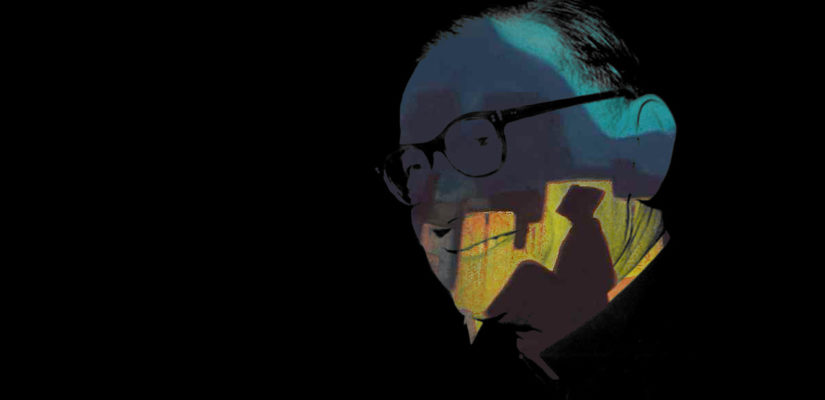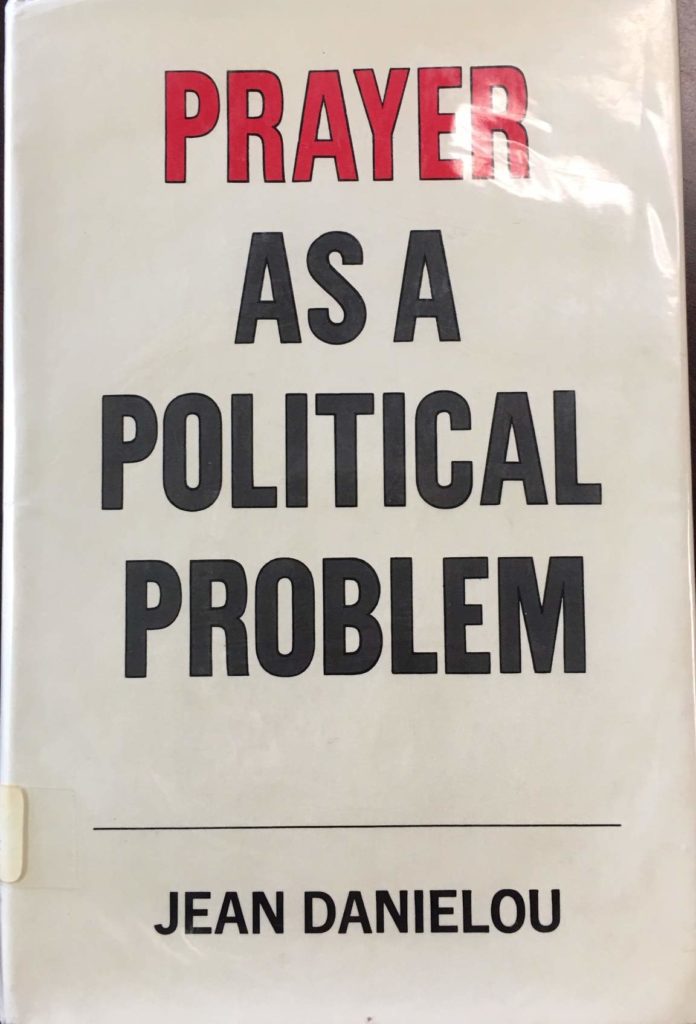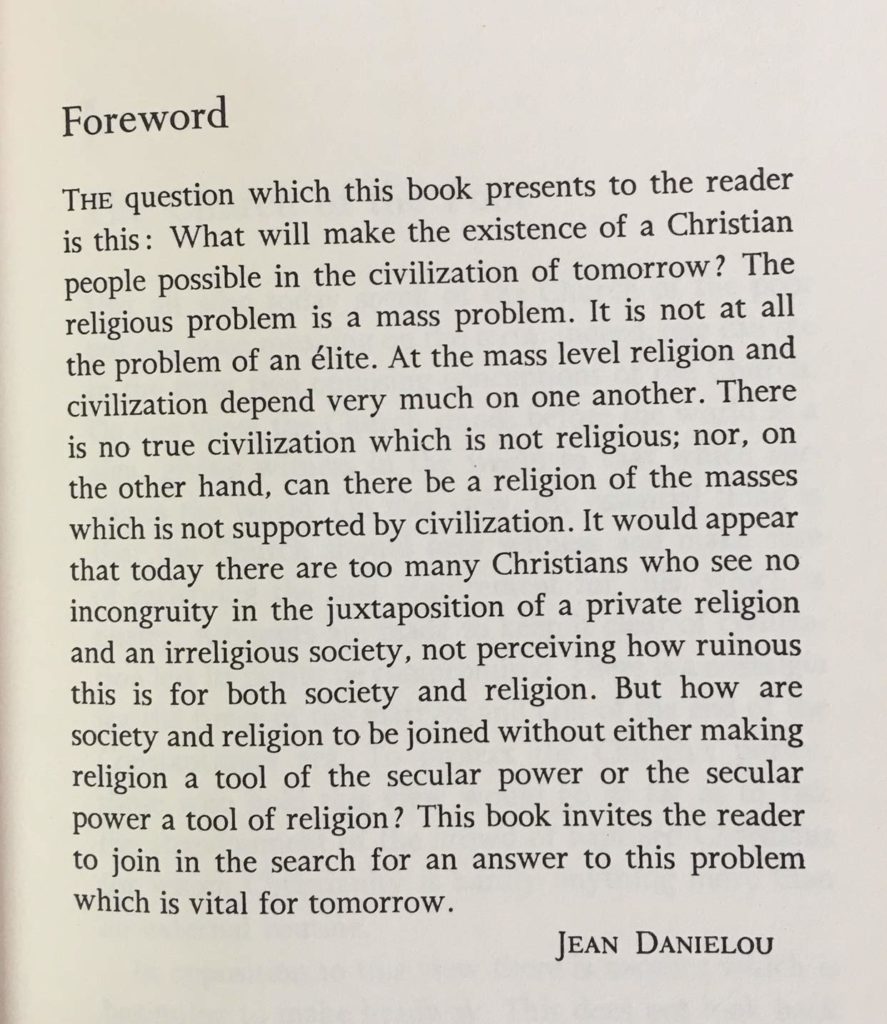
Prayer as a Political Problem | (dot)philosophy

(dot)philosophy | A space by GIACOMO MARIA ARRIGO
In 1965 the Roman Catholic cardinal Jean Daniélou (1905-1974), a French member of the Jesuit order, published the essay entitled L’oraison, problem politique. It is an intriguing essay on the relation between politics and religion in contemporary age.



Here some quotations from the book:
• «We all feel that spiritual experience, prayer, is threatened today. […] By prayer, I mean God-oriented spiritual experience. […] I do not treat prayer in the specifically Christian sense, but in the sense that prayer is a constitutive element of all religions. […] The prayer of man today is that of a man committed to the world of technological progress».
• «Between the dominion of the inner man and that of progress there should be no radical distance, there should be dialogue between prayer and politics, and the one and the other are necessary — and in a certain sense complementary. There can be no civilization in which prayer is not represented».
• «A society where there are no churches next to factories is an inhuman society».
• «The danger posed by the modern world is not the appearance of technological civilization, but the abandonment of worship».
• «Prayer, because it expresses the personal fulfillment of a particular human dimension, is a political problem in so far as a society that would make it impossible would betray its role as a society».
• «For all men today, given the conditioning in which they find themselves, the realization of the life of prayer is practically impossible. As a result, society is badly made».
• «The civilization in which we live makes prayer difficult. Technological progress brings about a change of pace in human life, an acceleration of time that makes it more difficult to find the minimum space that prayer life needs, even the most modest. Prayer is thus made almost impossible for most men outside of an act of heroism, of a willpower of which most men are incapable».
• «The modern world shows us a greater awareness of nationalities, and this is a creative and constructive element of tomorrow’s humanity. […] At a time when one would have believed in a unification of the world through technology, one sees these vital forces [young nationalisms] resisting this unification. They seem to me to be one of the healthiest forces of humanity against the threat of a technological civilization that would risk leading to a uniform collective humanity, without originality».
• «In a world where we are threatened by atheism, we must first defend the substance of the Sacred, wherever it may be».
• «A civilization is an order of things in which the material elements, which result from the progress of technology, must be placed at the service of the authentic purposes of the human person. […] With technology one can give birth both to barbarism and civilization».
• «When Christians defend God’s place in human society as an essential element of society itself, it is not God they defend, because God does not need to be defended, He is not threatened: the one who is threatened is man. […] If a world in which men have no home is an inhuman world, a world in which God has no home is an equally inhuman world».
• «Nothing would be more wrong than to say that on one side there is the Church and on the other the atheist world. The world is not atheist. There are atheists in the world, but the world is divine. Atheists are an accident».